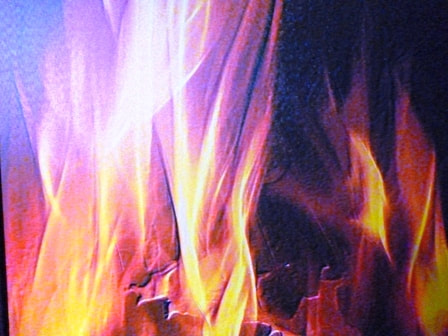Sludge Metal
theological reflections
за волгой для нас земли нет
"The nomadic sludge-metal duo has been destroying ears and rattling bodies for 20 years. Somehow, the towers of amp stacks have gotten even bigger and louder along the way. Watch Jucifer level the Black Cat in Washington, D.C., with a morphing medley that includes tracks from its new, Stalingrad-themed album."
from NPR Front Row: July 17, 2013
from NPR Front Row: July 17, 2013
за волгой для нас земли нет Rolling in the Doom What is Sludge Metal? |
Who in the hell is Jucifer? A Theology of Sludge Metal |


